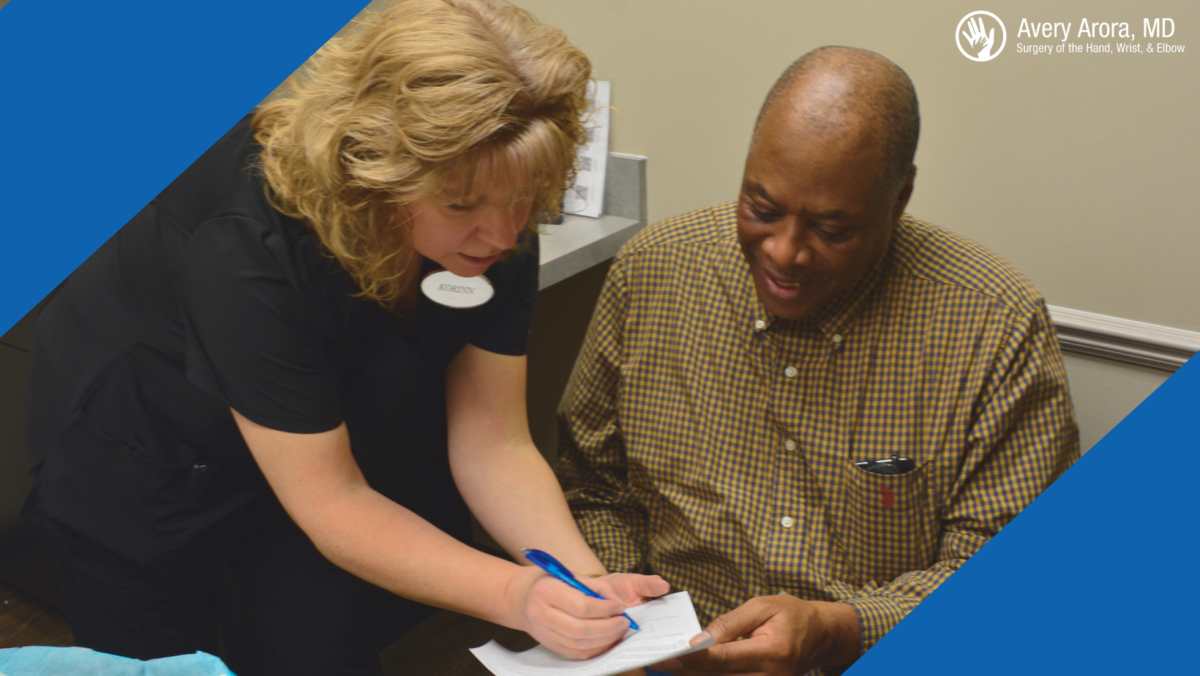If you’ve ever noticed your finger catching, locking, or feeling stiff when you try to straighten it, you might be dealing with a condition called trigger finger (medically known as stenosing tenosynovitis). This happens when inflammation narrows the space around the tendon in your finger, making it harder for it to glide smoothly.
While certain health conditions and repetitive motions can increase your risk, many people are surprised to learn that everyday habits can make trigger finger symptoms worse — or slow down recovery if you already have it.
At Arora Hand Surgery, Dr. Avery Arora sees many patients throughout Southeast Michigan who benefit from early diagnosis and adjustments to their daily routine. Here are some common habits to watch out for.
Repetitive Gripping or Pinching
Activities that require you to grip or pinch for extended periods put extra strain on the flexor tendons in your fingers. This can include:
- Using hand tools
- Playing certain musical instruments
- Gardening
- Using scissors or shears
Tip: When possible, take frequent breaks and use ergonomically designed tools with padded grips.
Long Hours on Smartphones or Tablets
Scrolling, typing, and texting for long periods can aggravate trigger finger, especially if you hold your phone tightly or use your thumb excessively.
Tip: Switch hands, use voice-to-text features, or take regular “screen breaks” to give your hands and fingers a rest.
Ignoring Early Symptoms
One of the most damaging habits is simply waiting too long to seek treatment. In the early stages, trigger finger may cause mild stiffness or occasional locking, but over time, the finger may become permanently bent without proper care.
Tip: If you notice any locking, popping, or persistent stiffness, schedule an appointment with a hand specialist before symptoms progress.
Sleeping With Your Fingers Curled
Many people sleep with their fingers curled into a fist without realizing it. This position can cause the tendons to remain in a shortened state for hours, making morning stiffness worse.
Tip: A lightweight finger splint worn at night can help keep your fingers straight while you sleep.
Skipping Stretching or Hand Exercises
Your fingers benefit from gentle stretching and mobility exercises — especially if your daily activities involve repetitive motion. Not moving your fingers through their full range of motion can lead to increased stiffness.
Tip: Try gentle exercises, like slowly bending and straightening your fingers several times a day. Your hand therapist can recommend the best exercises for you.
Overusing the Injured Finger During Recovery
If you’ve been diagnosed with trigger finger, it’s important to follow your doctor’s instructions. Continuing to overuse your hand during recovery can delay healing and increase the likelihood of needing more aggressive treatments.
Tip: Follow activity restrictions, use splints as recommended, and attend all follow-up appointments to track your progress.

When to See a Hand Specialist
Trigger finger can often be treated successfully with non-surgical options like splinting, activity modification, or steroid injections — especially if caught early. However, in severe or long-standing cases, a quick outpatient procedure may be necessary to release the tendon and restore normal movement.
Dr. Avery Arora, a board-certified hand surgeon, has extensive experience diagnosing and treating trigger finger. With four offices conveniently located in Southeast Michigan, including West Bloomfield, Howell, Macomb, and Warren, our team is here to help you find relief and get back to the activities you enjoy.
Don’t wait for your symptoms to worsen. Schedule an appointment with Arora Hand Surgery today to discuss your treatment options and prevent long-term damage.

















